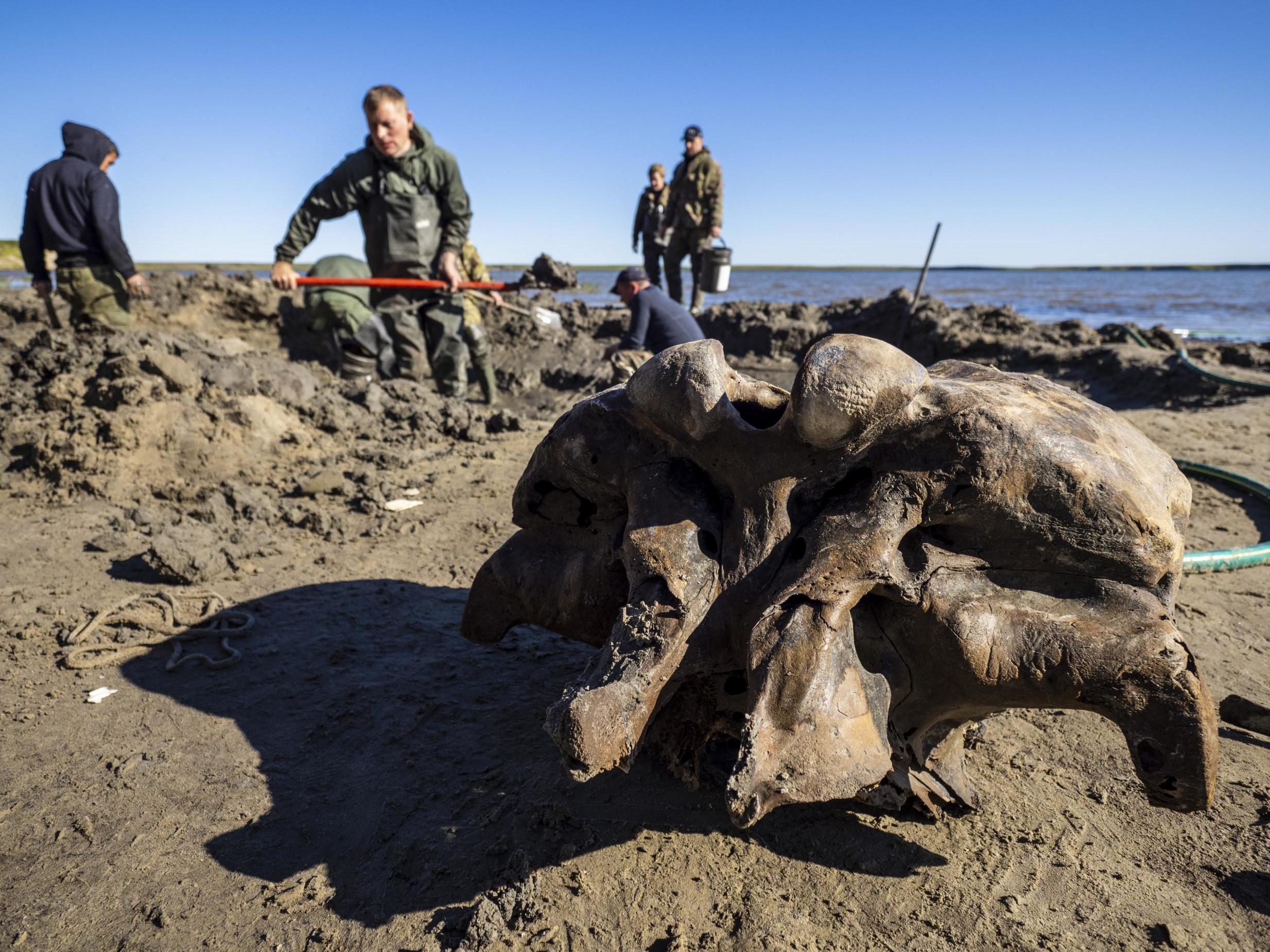Russian archaeologists excavate well-preserved mammoth skeleton with muscles intact
Preserved skeletons emerging from Siberian permafrost amid continued warming of region

Your support helps us to tell the story
From reproductive rights to climate change to Big Tech, The Independent is on the ground when the story is developing. Whether it's investigating the financials of Elon Musk's pro-Trump PAC or producing our latest documentary, 'The A Word', which shines a light on the American women fighting for reproductive rights, we know how important it is to parse out the facts from the messaging.
At such a critical moment in US history, we need reporters on the ground. Your donation allows us to keep sending journalists to speak to both sides of the story.
The Independent is trusted by Americans across the entire political spectrum. And unlike many other quality news outlets, we choose not to lock Americans out of our reporting and analysis with paywalls. We believe quality journalism should be available to everyone, paid for by those who can afford it.
Your support makes all the difference.The preserved skeleton of a woolly mammoth with elements of its musculature still intact has been discovered by reindeer herders in a lake in northern Siberia, triggering an excavation to recover the body for scientific research.
Woolly mammoths are thought to have fully died out 10,000 years ago, with genetic mutations, hunting by humans and global warming among the main culprits for their extinction.
However, scientists believe a small number of the creatures may have been able to thrive in the icy climates of Alaska and Russia’s Wrangel Island off the Siberian coast.
Now researchers have uncovered body parts of one of the beasts with soft tissue - including sinew - still intact.
Discovered by reindeer herders in the shallows of Pechevalavato Lake on the Yamalo-Nenets region, the find includes part of the animal's skull, the lower jaw, several ribs, and a foot fragment.
Russian television stations on Friday showed scientists looking for more of the animal’s remains in the lakeside silt.
Yevgeniya Khozyainova of the Shemanovsky Institute in Salekhard said in televised remarks that finding the complete skeleton of a mammoth was relatively rare.
Such discoveries allow scientists to deepen their understanding of mammoths, and the world they shared with early humans.
It comes as the vast north Asian region sees dramatic rises in temperature, leading to the discovery of a number of well-preserved frozen carcasses of mammoths.
Siberia is currently undergoing a heat wave, with the UN weather agency warning that average temperatures were 10C above average last month.
A study published by the UK Met Office earlier this month found that such warming was “almost impossible” without the impact of global warming on the climate crisis engulfing the planet.
Additional reporting by Associated Press
Join our commenting forum
Join thought-provoking conversations, follow other Independent readers and see their replies
Comments